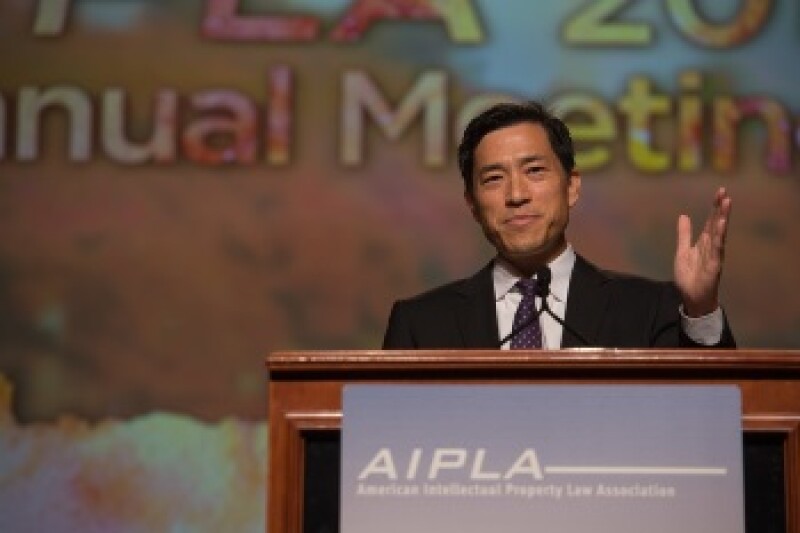
Chen pointed to changes at the USPTO, where he served as deputy general counsel until he assumed office at the court last August, as being particularly important. He noted that the new Patent Trial and Appeal Board (PTAB) brought about by the Leahy-Smith America Invents Act (AIA), has already received 2,000 petitions since 2012. Of the completed petitions, about 900 reviews have been granted – roughly a 75%- 80% grant rate.
Given that it will be rendering decisions on hundreds of patents a year, Chen stressed the significance of the PTAB and advised rights owners to pay close attention to its decisions.
“It’s quite a commentary it seems to me that in such a short period of time the PTAB has found that at least some claims in almost 1,000 patents are unpatentable,” he noted. “Those grants are of course non-final decisions, but the decision to grant the petition is not simply a small hurdle. It is a significant event that should get the attention of any patent lawyer.”
In addition to being a major change for the parties involved in the AIA proceedings themselves, Chen hopes that the PTAB proceedings will also be a tool to help improve USPTO practice overall. Instead of just being a “backward looking” tool for parties to challenge what may be an improperly granted patent, it is also a forward looking tool that will provide valuable data about how to improve patent quality.
“For example, when the Patent Board finds claims unpatentable in an AIA petition, how often is it that the rejections are based on United States patents that were not considered in the first instance?” Chen asked. “How often are the objections based on foreign patents? There could be opportunities to learn how to improve the examiners’ prior art searches or to improve their access to relevant prior art.”
He added: “In the next few years, the Patent Board will have created a rich source of in-house generated material that the agency can potentially use to further improve the quality of the patent system.”
In addition to his thoughts on the changes at the USPTO, Chen also shared his perspective of the patent system from behind the bench. Because he assumed his seat just a little over a year ago, many of his comments related to his transition to his new position.
For example, one issue he noted was the heavy workload that judges have to bear. Not only are they required to juggle tens of cases at once, they must also render clear and well-reasoned decisions in them. Having his attention spread out over such a large number of matters is one of the biggest adjustments that he has had to make.
“Back when I was an advocate, I was very used to knowing my individual cases inside and out; I prided myself on knowing that whenever I walked into the courtroom, nobody in that room knew that case better than I did,” Chen explained. “That goal is much harder to achieve when I have 15 or 16 oral arguments to prepare for in a single hearing week. In fact, it’s just not realistic.”
Chen also says that he has developed a better appreciation of the challenges that judges face. For example, he notes that when he was a USPTO lawyer, he wanted judicial opinions that provided bright line categorical rules that can be applied to a wide range of cases. However, since becoming a judge, he realized that courts should decide cases narrowly. While subtle and narrow decisions may be frustrating to lawyers looking for certainty for clients, courts, he noted, shouldn’t be pre-judging issues based on facts that aren’t before it.
In light of this challenging transition from advocate to judge, Chen expressed gratitude and appreciation to various people who have helped him. In addition to praising the work of fellow judges, former colleagues at the USPTO and his mentors, he also made a point of thanking his clerks.
“[My clerks] are smart; they are talented, work hard and are super motivated. They are always willing to talk to me, they help me think through issues,” he said. “They are always upbeat when I ask them to do something, and they laugh at my jokes.”
“I kind of wish my kids were a little bit more like that.”









